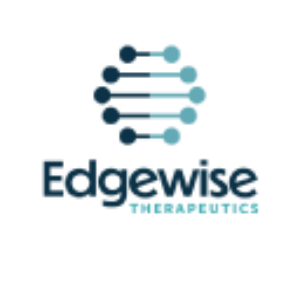Edgewise Therapeutics Announces Positive 2-Month Interim Results from the ARCH Open Label Study of EDG-5506 in Adults with Becker Muscular Dystrophy (BMD)
– EDG-5506 treatment significantly lowered muscle damage biomarkers in adults with BMD –
– BMD patients were more active during 2 months of dosing with EDG-5506 relative to activity measured in BMD patients in the Phase 1 study –
– EDG-5506 was well tolerated with no serious adverse events observed; safety profile supported dose escalation to 15 mg daily for all patients –
– Management hosting webcast to discuss findings on
The twelve adults with BMD enrolled in the ARCH study, including all seven participants from the Phase 1b study, were administered daily 10 mg oral doses of EDG-5506 at night. EDG-5506 was well-tolerated with no discontinuations or dose reductions. The most common adverse events observed at the 10 mg dose were dizziness (
The 2-month plasma PK data for the 10 mg once-daily dose of EDG-5506 showed exposure levels that were approximately
Treatment with EDG-5506 led to a significant decrease in key biomarkers of muscle damage when assessed by laboratory assays. Importantly, creatine kinase (CK) and fast skeletal muscle troponin I (TNNI2) were reduced by an average of
BMD participants in the ARCH study were fitted with a pedometer to measure daily activity during waking hours. Activity levels at 2 months of dosing with EDG-5506 increased over both activity levels at 1 month and activity levels observed in participants in the Phase 1b study, even with lower overall exposure to EDG-5506.
The observation that both CK and TNNI2 were significantly decreased in the context of typical everyday activity levels is encouraging. The Company believes the 2-month ARCH study data provide further support for the hypothesis that EDG-5506 meaningfully reduces damage from the excessive stress present in dystrophic muscle, thus potentially preserving muscle function and preventing disease progression in dystrophinopathies.
“The magnitude of reduction in biomarkers of muscle damage in adults with BMD is consistent with our observations in the Phase 1b trial,” said
“I want to express my deepest appreciation to the individuals with BMD who are participating in the EDG-5506 clinical trials,” added
Data Review Conference Call
Members of the Edgewise management team will hold a conference call and webcast on
About the ARCH Open Label Study
The ARCH open label study is evaluating EDG-5506 in 12 adult males with BMD. All those who participated in the Phase 1b first-in-human study of EDG-5506 enrolled in the ARCH study after at least a 3-month washout following their participation in the Phase 1b trial. The study is evaluating escalating doses of EDG-5506 administered daily over 12 months. Safety, pharmacokinetics (PK), changes in biomarkers of muscle damage such as creatine kinase (CK) and fast skeletal muscle troponin I (TNNI2), measures of function with North Star Ambulatory Assessment / North Star Assessment for Limb Girdle Type Muscular Dystrophies (NSAA/NSAD), time function tests and patient-reported outcomes, are being evaluated. Go to clinicaltrials.gov to learn more about this study (NCT05160415).
About Becker Muscular Dystrophy
BMD is a serious, progressively debilitating, and potentially fatal inherited X-linked neuromuscular disorder. BMD results from mutation of the dystrophin gene yielding unstable and/or dysfunctional dystrophin expression in muscles. Individuals with BMD, typically males, have ongoing muscle fiber (myofiber) degeneration that eventually leads to fibrosis, progressive loss of skeletal muscle function, and that can lead to severe disability and early death. BMD typically presents with juvenile onset of muscle wasting and progressive symmetrical, proximal muscle weakness, calf hypertrophy, activity-induced muscle cramping and elevated creatine kinase activity. While the course of BMD is variable, it is unidirectional in terms of the inevitable progressive limb weakness resulting in severe disability. BMD is also associated with early mortality from cardiac disease. The incidence of BMD is approximately 1 in every 18,450 live male births. It is estimated that there are between 4,000 to 5,000 individuals with BMD in the
About EDG-5506 for DMD and BMD
EDG-5506 is an orally administered small molecule designed to address muscle damage induced by mechanical stress in dystrophinopathies including DMD and BMD. EDG-5506 presents a novel mechanism of action to selectively limit the exaggerated muscle damage caused by the absence of functional dystrophin. EDG-5506 has the potential to benefit a broad range of patients suffering from debilitating rare neuromuscular disorders. It is anticipated to be used as a single agent therapy, but it may also provide a synergistic or additive effect in combination with available therapies and therapies currently in development. In
The Company has completed a Phase 1 clinical trial of EDG-5506 designed to evaluate safety, tolerability, PK and PD of EDG-5506 in adult healthy volunteers (Phase 1a) and in adults with BMD (Phase 1b). Go to clinicaltrials.gov to learn more about this clinical trial (NCT04585464). A follow-on open-label, single-center study is assessing the long-term safety and PK of EDG-5506 in adults with BMD (NCT05160415). The Company anticipates initiation of Phase 2 trials in individuals with BMD in the coming weeks and DMD in the second half of 2022.
About
Cautionary Note Regarding Forward-Looking Statements
This press release contains forward-looking statements as that term is defined in Section 27A of the Securities Act of 1933 and Section 21E of the Securities Exchange Act of 1934. Statements in this press release that are not purely historical are forward-looking statements. Such forward-looking statements include, among other things, statements regarding the potential of, and expectations regarding, Edgewise’s drug discovery platform, product candidates and programs, including EDG-5506; statements regarding Edgewise's expectations relating to its clinical trials of EDG-5506, including the timing of the initiation of Phase 2 trials in individuals with BMD and DMD and the timing of sharing further updates from the ARCH study; statements by Edgewise's president and chief executive officer and chief medical officer. Words such as “believes,” “anticipates,” “plans,” “expects,” “intends,” “will,” “goal,” “potential” and similar expressions are intended to identify forward-looking statements. The forward-looking statements contained herein are based upon Edgewise’s current expectations and involve assumptions that may never materialize or may prove to be incorrect. Actual results could differ materially from those projected in any forward-looking statements due to numerous risks and uncertainties, including but not limited to: risks associated with the process of discovering, developing and commercializing drugs that are safe and effective for use as human therapeutics and operating as an early clinical stage company including the potential for Edgewise’s product candidates to cause serious adverse events; Edgewise’s ability to develop, initiate or complete preclinical studies and clinical trials for, obtain approvals for and commercialize any of its product candidates for muscular dystrophy patients or other patient populations; the timing, progress and results of preclinical studies and clinical trials for EDG-5506; Edgewise’s ability to raise any additional funding it will need to continue to pursue its business and product development plans; negative impacts of the COVID-19 pandemic on Edgewise’s operations, including preclinical and clinical trials; the timing, scope and likelihood of regulatory filings and approvals; the potential for any clinical trial results to differ from preclinical, interim, preliminary, topline or expected results; Edgewise’s ability to develop a proprietary drug discovery platform to build a pipeline of product candidates; Edgewise’s ability to enroll and maintain patients in its ongoing and future clinical trials; Edgewise’s manufacturing, commercialization and marketing capabilities and strategy; the size of the market opportunity for Edgewise’s product candidates; the loss of key scientific or management personnel; competition in the industry in which Edgewise operates; Edgewise’s reliance on third parties; Edgewise’s ability to obtain and maintain intellectual property protection for its product candidates; general economic and market conditions; and other risks. Information regarding the foregoing and additional risks may be found in the section entitled “Risk Factors” in documents that Edgewise files from time to time with the
View source version on businesswire.com: https://www.businesswire.com/news/home/20220620005099/en/
Investors & Media
Chief Financial Officer
IR@edgewisetx.com
Source:






